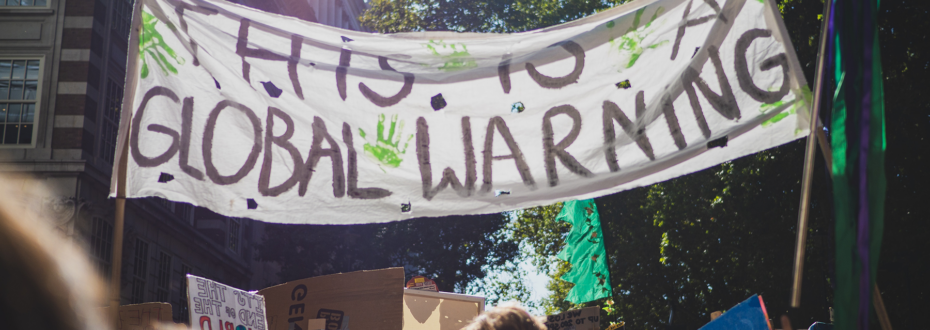While it might not feel like it here in the UK, the world has just experienced its hottest July on record. This follows hot on the heels of June, when temperatures reached 32.2 C in the UK. Record-breaking scorchers outdo each other in quick succession. As a 29-year-old, I am old enough to remember temperatures above 30 C being a rare anomaly, but they are now happening with increasing and worrying regularity. Last summer we breached 40 degrees, a temperature which many countries well surpassed this year, resulting in widespread wildfires from Algeria to Canada. Say goodbye to global warming – we are now in the era of global boiling.
Heatwaves pose a significant risk to our physical health, but how do they impact our mental health? We know that the climate crisis provokes anxiety and despair in many people, but research has found that extreme temperatures in and of themselves are bad for our mental health. A study in the US found that extremely hot days result in an increase in the numbers of people who attend hospital due to experiencing a mental health crisis. This increase was found in relation to almost all mental health conditions and for all age brackets. Research has also found that heatwaves and heightened humidity are both linked to increased rates of suicide. In Bangladesh, researchers found that a temperature increase of just 1 degree Celsius was associated with higher rates of anxiety and depression. In addition, some antipsychotic medications and antidepressants are known to affect temperature regulation, and a side effect of taking lithium-containing mood stabilisers is dehydration, putting people with mental health difficulties at higher risk of heat-related illnesses when temperatures soar.
Our exposure to the mental health risks of the climate crisis is far from equal. Around the world, livelihoods are being wiped out by drought and floods, leaving people unable to cope and forced to uproot themselves from their communities. In India, extreme temperatures of up to 49 Celsius have killed off crops, having a huge impact on farmers’ mental health:
“I keep waking up at night and negative thoughts about an uncertain future keep recurring in my head. But I keep my sorrows to myself. What can I do?”
A UK study found that low-income households were among the groups most affected by climate hazards including heatwaves, with mental health impacts being among the consequences. Analysis suggests that people in deprived areas of the UK are more than twice as likely to live in urban heat islands – residential areas with little shade or green space where concrete buildings and tarmac roads soak up heat. Lots of UK housing is poorly designed for keeping cool in extreme temperatures: 20% of homes in England overheat in the summer. “[The heat] made my anxiety really bad”, one resident commented to The Big Issue. Dramatically inflated energy and food prices also put the possibility of turning on a fan and other methods to keep cool out of reach for many people. “We really feel the pinch with the heat. It’s all very well to say have an ice lolly but sometimes you can’t afford ice lollies”, shared a woman living outside Glasgow.
Refugees are more likely to live in poor quality and overcrowded housing, putting them at higher risk during heatwaves. In the context of increasingly inhumane immigration policies, how do we get to a place where we are able to provide a genuinely safe and climate resilient haven for all refugees, including people fleeing extreme weather events? As the instigator of the industrial revolution which birthed the climate crisis we are currently living through, we have to take responsibility for the dangers we have created.
While most people would be hard pressed at this juncture not to accept the reality of climate change, the action being taken still does not reflect the urgency of the situation. The UK government’s intention to ramp up oil and gas extraction has raised serious concerns, while the Labour opposition has been accused of watering down its climate spending pledges, and climate protesters have been criminalised.
We cannot bury our heads in the hot, hot sand. We also need to understand that we cannot “grow” our way out of this crisis, by supplementing fossil fuel expansion with a carbon copy economic model based on mass extraction to fuel renewable technologies. We need to transition to green energy. But mining for these materials is not without its human and environmental costs. Just ask communities enduring water scarcity and pollution because UK-based companies are mining copper, lithium and other materials from their territories.
There is a real parallel here with mental health. Rising mental health needs clearly require massive improvements in access to and quality of services. But without addressing the structural causes of mental distress – poverty, racism, homophobia, transphobia, extreme temperatures – need is likely to keep outstripping provision. Likewise, if our main response to the climate crisis is to continue with the mass extraction of materials – merely swapping oil, gas and coal for copper, lithium and cobalt – we will continue down the path of ecological devastation with its accompanying costs to human health and wellbeing. Along with warming the climate, we are depleting our natural resources and decimating biodiversity. And these things are all interrelated. Let’s think holistically and put the wellbeing of people and the planet first, taking the lead from youth-led movements like Green New Deal Rising.
We desperately need to turn down the heat, literally and figuratively, that is exposing us to crisis and devise truly sustainable and equitable solutions to climate change. We cannot subscribe to the inherently racist logic that lets some communities be sacrificed in order to protect others. We need to think global and local. The Intergovernmental Panel on Climate Change includes improving access to mental health care among its suggested climate change adaptations. In Bangladesh, people are calling for access to mental health services to be democratised by strengthening community-based resources and health workers with training from specialists. Those of us working in mental health here in the UK should see action on climate change as an absolutely critical component for protecting mental health worldwide.
To explore the intersections between climate change and mental health further, check out our Festival of Ideas event – watch here








